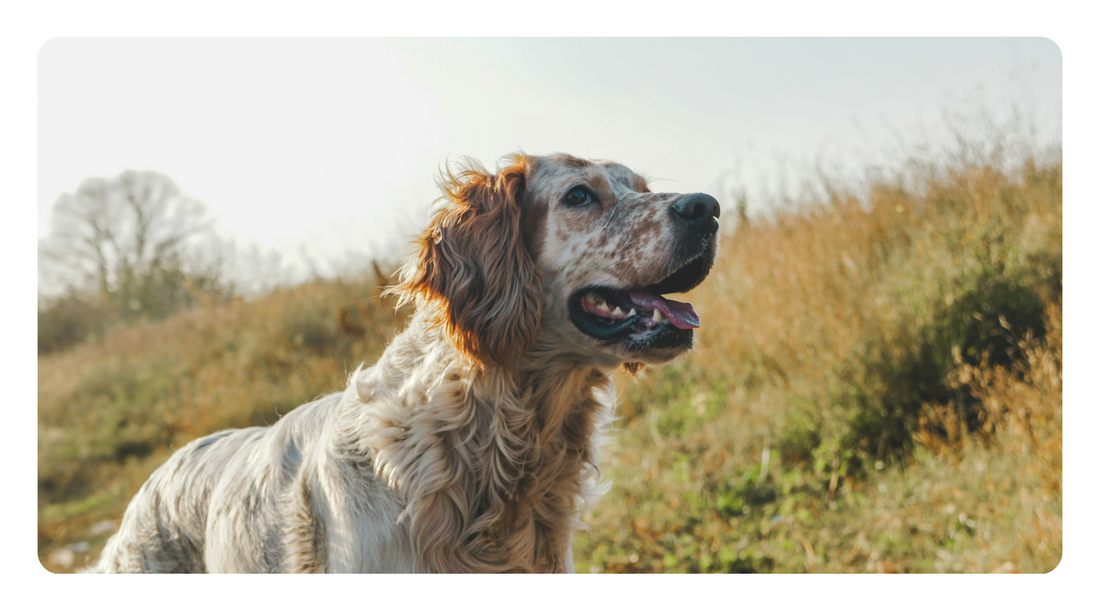Cancer is one of the leading causes of death in dogs, affecting nearly 50% of dogs over the age of 10. While genetics can play a role, environmental factors, diet, and lifestyle choices significantly impact a dog’s risk of developing cancer. Fortunately, there are proactive steps you can take to help reduce the risk of cancer and support your dog’s long-term health.
In this blog, we’ll explore natural strategies to help prevent cancer in dogs, including diet, detoxification, immune support, and lifestyle changes. By making intentional choices now, you can give your dog the best chance of a long, healthy, cancer-free life.
Understanding Cancer in Dogs
Cancer occurs when abnormal cells grow uncontrollably, forming tumors that can invade surrounding tissues and spread throughout the body. While some cancers are aggressive, others progress slowly and may respond well to early intervention.
Common types of cancer in dogs include:
- Lymphoma (affecting the lymphatic system)
- Mast cell tumors (a form of skin cancer)
- Hemangiosarcoma (cancer of the blood vessels, often affecting the spleen or heart)
- Osteosarcoma (bone cancer)
- Mammary gland tumors (especially in unspayed females)
While certain breeds are more predisposed to cancer, environmental toxins, chronic inflammation, poor diet, and excessive oxidative stress all contribute to the likelihood of cancer development. Preventing these risk factors is key to protecting your dog’s health.
Natural Strategies to Prevent Cancer in Dogs
Feed a Fresh, Anti-Inflammatory Diet
A highly processed, carbohydrate-heavy diet can contribute to chronic inflammation, which fuels cancer growth. The best way to support long-term health is by feeding a fresh, whole-food diet rich in high-quality proteins, healthy fats, and nutrient-dense vegetables.
Lean proteins like grass-fed beef, pasture-raised poultry, or wild-caught fish provide essential amino acids that support cellular health and immune function. Healthy fats from omega-3-rich sources like sardines, mackerel, and green-lipped mussels help reduce inflammation and protect cells from oxidative damage.
Incorporate antioxidant-rich vegetables like broccoli, kale, and carrots, which contain powerful cancer-fighting compounds. Cruciferous vegetables, in particular, contain sulforaphane, a compound known to enhance detoxification and inhibit tumor growth.
Avoid ultra-processed dog foods, artificial preservatives, and excess carbohydrates, which can promote inflammation and oxidative stress.
Support the Immune System with Functional Foods and Supplements
A strong immune system is your dog’s first line of defense against cancer. Supporting immune health through targeted nutrition and supplements can enhance the body’s ability to fight abnormal cell growth.
Medicinal mushrooms like reishi, turkey tail, and chaga contain beta-glucans, compounds that stimulate immune cell activity and have been studied for their anti-cancer properties. Turkey tail mushroom, in particular, has been shown to slow tumor growth and improve survival rates in dogs with hemangiosarcoma.
Colostrum, a nutrient-dense superfood, helps regulate immune responses, making it a valuable addition to cancer prevention. It also supports gut health, which plays a major role in overall immunity.
Other immune-boosting supplements include:
- Probiotics to support gut microbiome balance and reduce inflammation.
- Vitamin C and E to provide antioxidant protection and cellular repair.
- Quercetin, a natural antihistamine with anti-inflammatory and anti-cancer properties.
Minimize Exposure to Environmental Toxins
Dogs are exposed to environmental toxins daily, from pesticides on grass to chemicals in household cleaning products. These toxins can disrupt the endocrine system, damage DNA, and contribute to cancer development.
To minimize toxin exposure:
- Use non-toxic, pet-safe cleaning products.
- Avoid chemical-laden air fresheners, scented candles, and synthetic fragrances. Use organic and non-toxic scented products instead.
- Opt for natural flea and tick preventatives instead of chemical-based treatments.
- Filter your dog’s drinking water to remove heavy metals, chlorine, and other contaminants.
Another hidden source of toxins is plastic food and water bowls, which can leach harmful chemicals like BPA. Switching to stainless steel or glass bowls eliminates this risk.
Reduce Inflammation and Oxidative Stress
Chronic inflammation fuels cancer growth by creating an environment where abnormal cells thrive. Reducing inflammation is one of the most effective ways to lower cancer risk.
Omega-3 fatty acids from fish oil or green-lipped mussel supplements help balance inflammation by counteracting excessive omega-6 fatty acids commonly found in processed pet foods.
Turmeric, with its active compound curcumin, is a natural anti-inflammatory powerhouse. Studies have shown that curcumin can inhibit tumor growth, suppress metastasis, and even trigger cancer cell apoptosis (cell death). Combining turmeric with black pepper and a healthy fat like coconut oil enhances its absorption.
Antioxidants, including glutathione, vitamin C, and selenium, help neutralize free radicals that can damage cells and lead to cancer. Including fresh berries, leafy greens, and antioxidant-rich supplements in your dog’s diet can reduce oxidative stress.
Support Natural Detoxification Pathways
The liver plays a crucial role in detoxifying harmful substances from the body. Supporting liver function helps ensure toxins are properly processed and eliminated.
Milk thistle is one of the best-known liver-supportive herbs, containing silymarin, which protects liver cells and promotes regeneration. Dandelion root also aids liver function by increasing bile production and assisting in toxin removal.
Chlorophyll-rich foods and supplements, such as spirulina, chlorella, and wheatgrass, bind to heavy metals and environmental toxins, facilitating their removal from the body.
Bone broth is another excellent addition, as it provides glycine, an amino acid that supports liver detoxification and helps heal the gut lining, reducing systemic inflammation.
Encourage Regular Exercise and Stress Management
Exercise plays a critical role in cancer prevention by improving circulation, enhancing immune function, and reducing excess fat, which can store inflammatory toxins. Daily walks, playtime, and mental enrichment help keep your dog active and engaged.
Chronic stress can also weaken the immune system, making the body more susceptible to disease. Providing a stable routine, regular companionship, and calming supplements like CBD oil or valerian root can help reduce stress levels.
Final Thoughts
Cancer prevention isn’t about a single magic solution—it’s about creating a lifestyle that minimizes risks while supporting your dog’s natural defenses. Feeding a fresh, nutrient-dense diet, reducing toxin exposure, and incorporating immune-boosting supplements all contribute to long-term health and cancer prevention.

